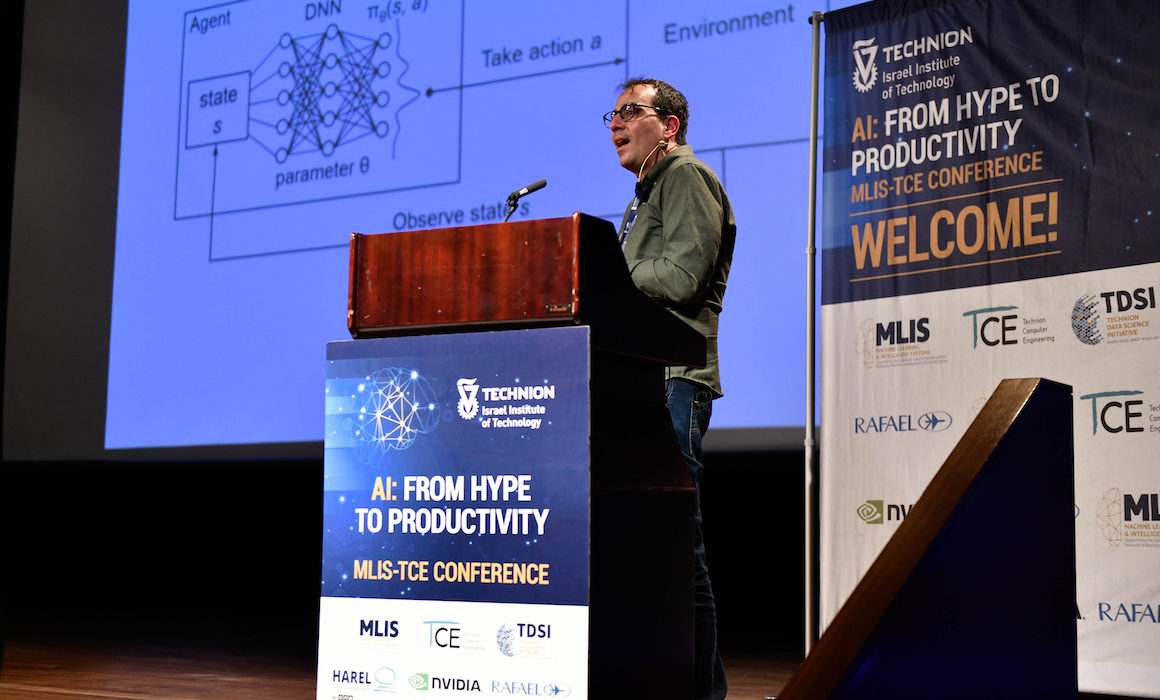Pictured Above / Professor Assaf Schuster
The Technion recently hosted “Artificial Intelligence (AI): From Hype to Productivity,” a conference that included leading figures from the Technion, local AI industry, and the governmental sector. The conference was created by the Machine Learning and Intelligent Systems Center (MLIS), the Technion Center for Computer Engineering (TCE), and the Technion Data Science Institute (TDSI), and led by Professors Assaf Schuster and Shie Mannor, who co-lead MLIS at the Technion. Professor Lihi Manor-Zelnik of the Andrew and Erna Viterbi Faculty of Electrical and Computer Engineering moderated the event.
The Technion’s President, Professor Uri Sivan, said at the opening of the event, “Artificial Intelligence is one of the ‘hottest’ topics today positioned at the forefront of research. This forms the background to this conference, which brings together research personnel from the Technion and industry to create a cooperation that is essential for both sides. For me, this is an opportunity to take pride in the many achievements of the AI community at the Technion.”
The conference lectures dealt with a wide range of topics, including the importance of deep learning, the robotics revolution, the gap between the human brain and AI models, and the role of AI in urban planning.
Prof. Mannor’s lecture dealt with Reinforcement Learning (RL) and its limitations. While there have been impressive successes with RL — mainly in the field of games, such as checkers, chess, and Go — there is a big leap between using it for a computer game and using it for autonomous driving. As he explained: “Why haven’t we yet solved the challenge of self-driving vehicles or even managing traffic jams at big roundabouts? The answer is that some things are very difficult to identify by computerized means. By way of example, a human driver, with all his limitations, knows how to recognize a pedestrian, and understands that if a plastic bag flies in front of the car there is no reason to swerve into the nearby lane to avoid it. Computers still don’t know how to make these distinctions.”
Prof. Assaf Schuster’s lecture dealt with Stream Mining, monitoring huge data flows in real time. Tens of thousands of events are sometimes created during these processes and the technological challenge is to analyze them quickly, reliably, and automatically.


